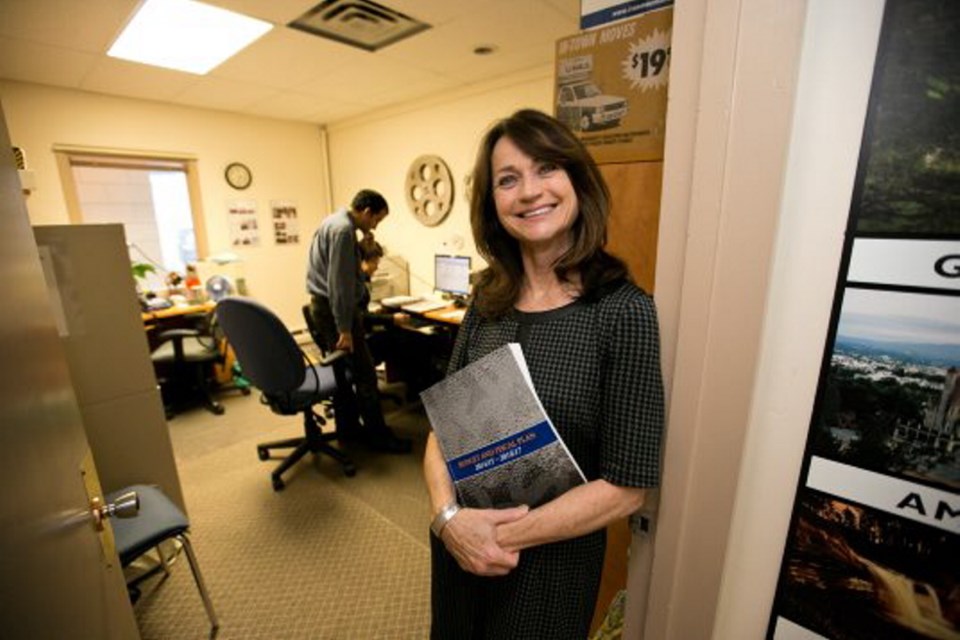One week after the B.C. government announced the capital region would get a new film tax credit, Victoria film commissioner Kathleen Gilbert is still busy with a flood of phone calls about making movies and TV shows here.
She got her first call from a producer just two hours after B.C. Finance Minister Mike de Jong broke the news on Feb. 18 that Greater Victoria would join other jurisdictions eligible for the tax credit.
The film promoter has since fielded many more calls and emails, putting in 12-hour days. The busy pace, she joked, has led her to flashback to the long days she put in during 20 years as a locations manager working in the trenches of film and TV production.
“Our telephone won’t stop ringing, right in the middle of grant [application] and gala season, of course,” Gilbert said with a laugh. “We’ve been run off our feet.”
The six per cent “distant location” tax credit was introduced in 2008 to encourage production outside the Vancouver area. Until now, it has been available only for shows shooting north of Whistler, east of Hope and anywhere on Vancouver Island except the capital region.
“It’s in place now so anyone who went to camera for principal photography the day after the budget can claim it,” Gilbert said, noting Gracepoint, in production here now, is eligible. Producers of Shine America’s 10-episode American remake of the British crime series Broadchurch can only claim the credit for episodes filmed after Feb. 18, however.
“When it comes to tax incentives with episodic TV, each episode is considered its own production,” Gilbert said, explaining why only the third to 10th episodes of the Fox TV series would qualify.
Producers could previously only access other B.C. tax incentives such as the 33 per cent basic production services tax credit, and another six per cent regional tax credit for productions filming outside the Lower Mainland. (A 17.5 per cent digital animation and visual effects credit is also available to companies that employ B.C. talent.)
While B.C.’s tax credits are labour-based, Ontario and Quebec are “all-spend” jurisdictions, where tax credits include other expenses, such as equipment.
Canadian producer Lisa Richardson said availability of the labour-based incentive removes an obstacle that prevented her from potentially shooting a new feature film in the capital region.
“It has definitely made a difference,” said Richardson, a partner in Vancouver-based Reunion Pictures (Continuum, Eve of Destruction). “Tax credits are very important for financing. If it hadn’t been for the [distant location] credit, we may have been looking at an all-spend jurisdiction.” The distant location bonus makes a potential shoot in Victoria more viable, she said. “With the advent of this increased credit, there will be a rush on Victoria now.”
Gilbert said that rush has already started, citing the case of a producer considering shooting an entire TV movie here instead of just two days at Fisgard Lighthouse.
With many local crafts people already working on Gracepoint, Gilbert said rebuilding the crew base is a top priority. “I’ll be calling a lot of our local people who [because of the recent production slump] have relocated elsewhere,” she said.
She got the ball rolling by teaching a two-day film orientation course on the weekend to inexperienced production assistants. Developed in partnership with industry unions, its topics include the demands and challenges of working in the film industry, on-set protocols, language and safety.



